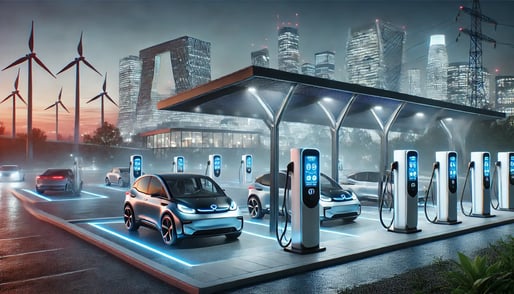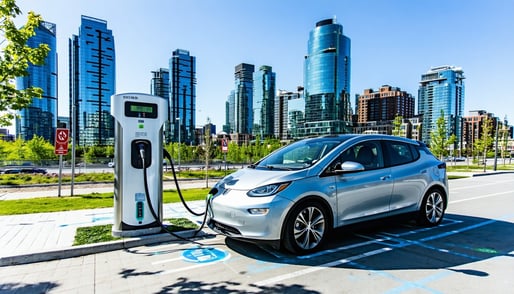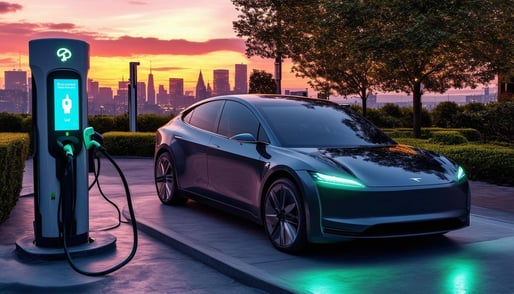With electric vehicles (EVs) becoming more popular, the need for private charging stations is growing fast. It’s great to have a convenient, faster-charging option right at home—but installing an EV charger isn’t a simple DIY project. To protect your property, your car, and your family, it’s essential to have your EV charger installed correctly and safely by a certified electrical contractor who also obtains the right permits.
Why You Should Choose a Certified Electrical Contractor
Let’s face it, hiring a certified electrical contractor for your EV charger installation is one of the smartest decisions you can make. A recent incident in Richmond, B.C., shows exactly what can happen when things go wrong. In this case, an unlicensed subcontractor installed a Level 2 EV charger without following safety protocols, resulting in loose connections and improper wiring. The charger overheated, causing arcing and damage beyond repair. Luckily, it was in a detached garage, and no further damage occurred—but it could have been much worse.
Certified electrical contractors know what they’re doing. They follow industry standards, use the right materials, and ensure everything meets safety codes so you can have peace of mind.
Do You Need A Permit to Install EV Charging Stations?
Getting the proper permits might sound like a hassle, but they’re absolutely crucial for safety and legal compliance. Certified contractors, like Electrum, take care of getting these permits, making sure that the work is inspected and meets all regulations. In the Richmond incident, the unlicensed installer didn’t get a permit, which left the homeowner at risk and could have invalidated their insurance.
Why Permits Are Essential:
-
Load Assessment: A permit process includes evaluating your home’s electrical capacity. A Level 2 charger needs a 240-volt outlet, which may require an electrical panel upgrade. A proper load assessment can prevent overloading your system and avoid overheating or electrical fires.
-
Inspections: Permits also require an inspection after installation, usually within 180 days. This ensures everything was installed correctly and is up to code.
Certified contractors handle all of this, making the process hassle-free while ensuring everything is done properly.
The Risks of DIY or Unlicensed Installers
We all love saving money, but when it comes to installing an EV charger, cutting corners can lead to major risks. Hiring an unlicensed electrician or attempting a DIY installation might seem cheaper, but the consequences can be serious:
-
Electrical Fires: Loose connections, incorrect wiring, or failing to assess load capacity can lead to overheating and fire hazards.
-
Vehicle Damage: Incorrect voltage or improper charging can damage your EV’s battery, leading to expensive repairs.
-
Insurance Issues: Many insurance policies won’t cover damage from unpermitted work. If something goes wrong, you could end up footing the bill.
Benefits of Hiring a Certified Contractor
-
Safety First: Certified contractors have the skills and experience to install EV chargers safely. They ensure connections are secure, wiring is correct, and that your electrical system can handle the load.
-
No Permit Headaches: A certified contractor handles all permits for you, ensuring everything is compliant with local regulations.
-
Peace of Mind: You can rest easy knowing the installation was done right. No worries about fire hazards or insurance issues.
-
Warranty Protection: Many EV charger manufacturers require professional installation to keep your warranty valid.
Get Rebates and Grants for Certified Installations
Want to save money on your EV charger installation? Hiring a certified contractor could make you eligible for rebates and grants. In British Columbia, B.C. Hydro offers rebates covering up to 50% of installation costs for eligible chargers, up to $600 for single family home installations and up to $2,000, total $14,000/yr per building, for an installation in a qualified multi-unit residential building (constructed prior to August 2021). These rebates require a licensed contractor and proper permits—another great reason to go the professional route.
Where to Find a Certified Electrician
Not sure where to find a licensed electrician? Don’t worry—there are plenty of resources to help. B.C. Hydro offers a referral service that connects customers with certified contractors who are skilled in EV charger installations. Many auto manufacturers, like Tesla, also provide certified installation options to ensure the job is done right.
At Electrum, we have our own team of Red Seal, EVITP, certified electricians, and we are certified Tesla and Porsche installers. Contact our team today to discuss your EV charging needs.
Conclusion: Don’t Skimp on Safety
The demand for private EV chargers is only going up, and as more people make the switch to electric vehicles, it’s essential to ensure that these installations are done safely. Hiring a certified electrical contractor who gets the right permits is the best way to protect your home, car, and family. You’ll know the installation is up to code, and you’ll enjoy the peace of mind that comes with knowing everything was done correctly.
Trying to save a few bucks upfront can lead to bigger problems down the line—as the Richmond case clearly shows. Make the smart choice: prioritize safety, compliance, and quality by hiring a certified electrical contractor for your EV charger installation. Contact Electrum to get started.
Tags:
EV Charging, Incentives, Rebates, Regulations, Certified Electrician, Permits, certified electrical contractor, B.C. Hydro rebates, electric vehicle charging safety, electrical permitsNov 27, 2024 7:21:06 PM



-2.jpg?width=635&height=357&name=Kings%20Landing%20(2)-2.jpg)





Comments